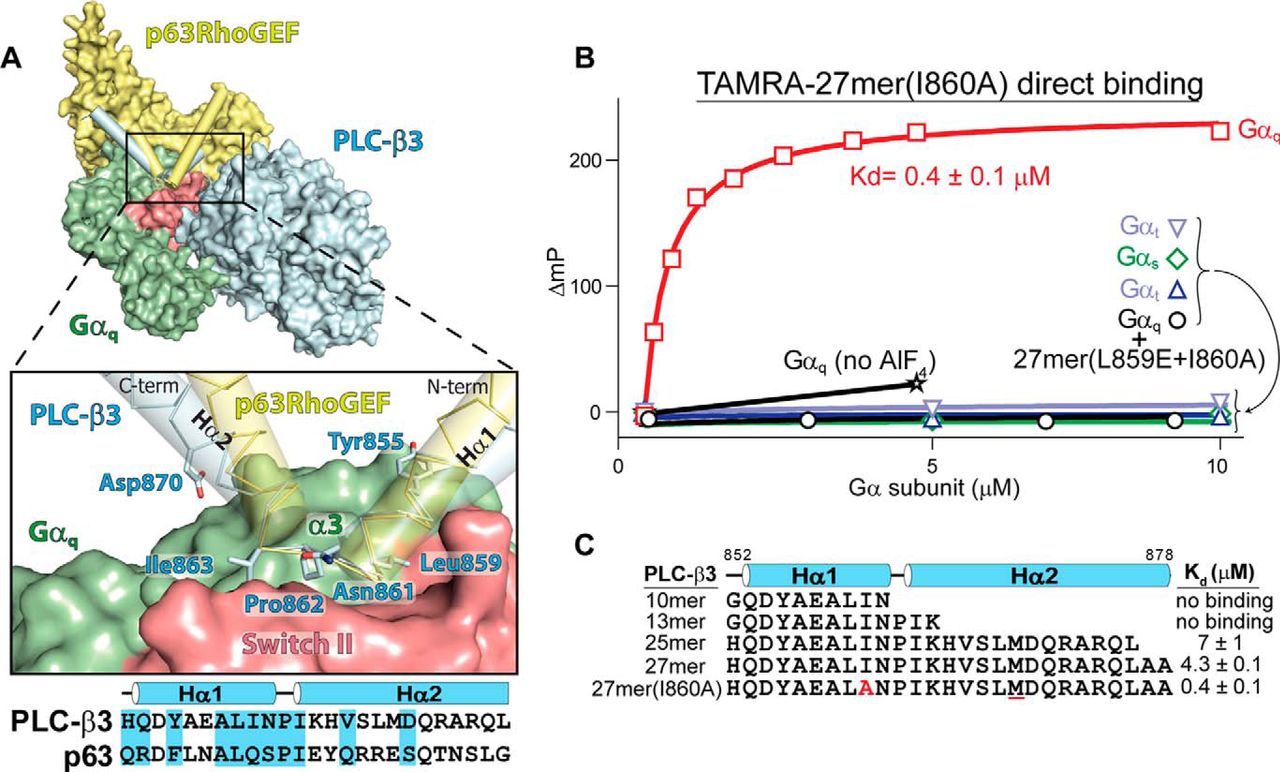UNC scientists led by John Sondek, PhD, created a new biochemical tool to block specific types of downstream G-protein signaling, opening new avenues of research and potential drug design and discovery.

CHAPEL HILL, NC – Scientists from the UNC School of Medicine have developed a new tool for studying a key process in cells called G-protein signaling, which plays a central role in the normal functioning of cells and can go awry to cause severe disease, including cancers.
Scientists have had few good methods for manipulating and investigating G-protein signaling. Now, UNC scientists have developed small proteins called peptides that selectively block a certain type of G-protein signaling. The peptides comprise a unique and powerful tool for studying this type of signaling and the processes in cells that depend on it. Based on this initial work, published in the Journal of Biological Chemistry, the researchers are now making related peptides that can block other types of G-protein signaling.
Aside from their value as basic scientific research tools, these peptides will be used to develop potential drugs for diseases involving abnormal G-protein signaling, including a form of melanoma for which there is currently no cure.
“These peptides should be valuable for drug design and discovery, and for understanding fundamental aspects of cellular biology,” said John Sondek, PhD, senior author of the JBC paper and professor in UNC’s departments of pharmacology and biochemistry & biophysics.
~Read the full article by Mark Derewicz on UNC School of Medicine Newsroom
~Read the journal article published in Journal of Biological Chemistry
First author on the paper is John Charpentier, former UNC postdoc in the Sondek lab.

Figure above; Gαq uses a conserved mechanism to engage effectors.
Co-authors of the study were former UNC postdoc Thomas Charpentier, PhD; UNC research analyst Gary Waldo; NIH scientist Emily Lowery-Gionta, PhD; UNC assistant professor Krzysztof Krajewski, PhD, director of the UNC High-Throughput Peptide Synthesis and Array Core Facility; Brian Strahl, PhD, UNC professor of biochemistry and biophysics; Thomas Kash, PhD, the John Andrews Distinguished Professor of Alcohol Studies in the UNC department of pharmacology; and Kendall Harden, PhD, professor emeritus in the department of pharmacology.
